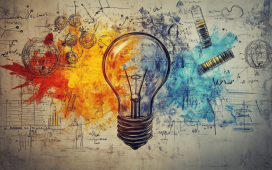Brussels must develop “new defensive tools” for sectors such as quantum computing and artificial intelligence as it updates its security policies in the face of an increasingly assertive China, the European Commission president has said.
Ursula von der Leyen said the EU needed to establish a clear line for trade in highly sensitive technologies where military use cannot be excluded, or where there are human rights implications, as it seeks to determine “whether investments or exports are in our own security interests”.
The commission is for example examining the creation of a mechanism for scrutinising overseas investment by EU companies in a small number of sensitive technologies that could enhance the military capabilities of rivals, she added.
The commission president’s speech comes as the US steps up pressure on its allies to align closer with Washington and harden their approach to China as tensions rise over Taiwan and Beijing’s support for Russia’s war against Ukraine.
Von der Leyen, who held talks in Washington DC with US president Joe Biden this month, warned of a “deliberate hardening” of China’s strategic stance, adding that Beijing was becoming “more repressive at home and more assertive abroad”.
The EU needed to ensure that its companies’ capital, expertise, and knowledge were not used to enhance the military and intelligence capabilities of the bloc’s “systemic rivals” — of which China is one.
She added: “A strong European China policy relies on strong co-ordination between member states and EU institutions and a willingness to avoid the divide and conquer tactics that we know we may face.”
Von der Leyen was speaking ahead of a planned trip to Beijing next week with French president Emmanuel Macron. She has tried to steer a line on China that is distinct from that of the US, stressing her goal is not to “decouple” Europe’s economy from China but rather a process of “de-risking”.
The commission president said she wanted to leave space for discussing “a more ambitious partnership” and making competition fairer and more disciplined. “We do not want to cut economic, societal, political and scientific ties,” she said.
But her speech at the European Policy Centre and the Mercator Institute for China Studies represented what she described as a “sober assessment” of relations and China’s strategic intentions. Chinese president Xi Jinping, she said, “essentially wants China to become the world’s most powerful nation”.
“The EU needs to define its future relationship with China and other countries in sensitive high-tech areas such as microelectronics, quantum computing, robotics, AI, biotech and others,” she said.
“Where dual-use purposes cannot be excluded or human rights might be implicated, there will need to be a clear line on whether investments or exports are in our own security interests.”
The Netherlands recently said it would block exports of the most advanced silicon chipmaking tools to China after pressure from the US.
Initial ideas would be presented as part of a new economic security strategy this year, she said.
The commission president also called for EU unity over the “bolder and faster” use of existing trade instruments in areas such as foreign direct investment, foreign subsidies and so-called economic coercion.
Von der Leyen said the EU would need to “reassess” the Comprehensive Agreement on Investment with China, a trade deal that was not ratified and has stalled since 2021. “We have to recognise that the world and China have changed in the last three years, and we need to reassess CAI in light of our wider China strategy.
“There are some areas where trade and investment poses risks to our economic or national security, particularly in the context of China’s explicit fusion of its military and commercial sectors,” she warned.
This goes especially for sensitive technologies, dual-use goods and investment that entails forced technology transfers. The EU, she added, would be “stress-testing our relationship to see where the greatest threats to our resilience, long-term prosperity and security lie”.
The EU also needed to make its own economy more competitive and resilient, including by strengthening and diversifying supplies of raw materials.
Referring to Xi’s visit to Russian president Vladimir Putin in Moscow last week, von der Leyen said it was clear that China sees Putin’s weakness as a way of increasing its leverage over Russia.
“Far from being put off by the atrocious and illegal invasion of Ukraine, President Xi is maintaining his ‘no limits friendship’ with Putin’s Russia,” she said. “It is clear that the power balance in that relationship — which for most of the last century favoured Russia — has now reversed.
“Any peace plan which would in effect consolidate Russian annexations is simply not a viable plan. We have to be frank on this point.”
She warned: “How China continues to interact with Putin’s war will be a determining factor for EU-China relations going forward.” Similarly, China’s compliance with international human rights obligations will also be a “test” for how much the EU can co-operate with China.
Additional reporting by Andy Bounds in Brussels










